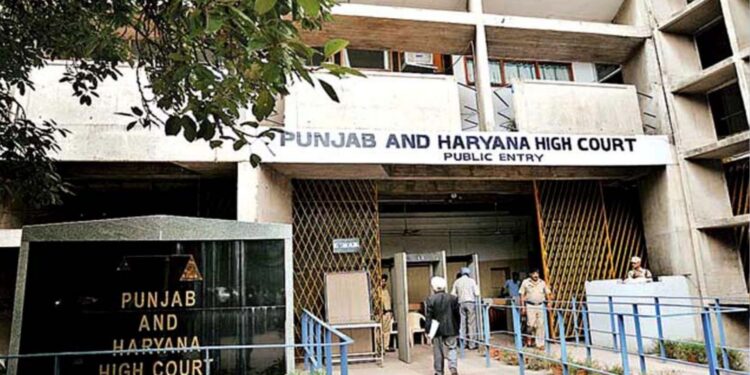The Punjab and Haryana High Court recently expressed shock over the way a trial court judge concluded that certain witnesses were guilty of giving false statements in court [Devender @ Sachin v. State of Haryana].
The trial court judge had assumed the witnesses were lying after noting discrepancies between their statements made to the police and their testimonies in court. As a result, he imposed a ₹500 fine on the witnesses.
A Bench comprising Justice Sanjeev Prakash Sharma and Justice Sanjay Vashisth strongly criticized the conduct of the Additional Sessions Judge in Hisar for mishandling the witness statements.
The High Court described the trial judge’s approach as “extremely shocking and painful.” The Court stated, “We are extremely hurt and shocked by how the concerned Additional Sessions Judge, Hisar, has conducted himself. We find that the learned judge proceeded with the assumption that the statement made under Section 161 Cr. P.C. before the police is the truthful one, and the statement made in court is false, even going so far as to punish the concerned witness.”
The Bench referred the matter to the High Court’s Chief Justice for administrative action and suggested that the trial judge may require further training.
The issue came to light while the Court was reviewing a plea filed by a juvenile seeking the suspension of his sentence during the pendency of his appeal. The juvenile had been tried as an adult in a murder case and sentenced to life imprisonment.
The appellant argued that the Juvenile Justice Board’s (JJB) order, which declared him fit to be tried as an adult, was flawed. He claimed that the JJB did not conduct a psychological assessment despite the appellant being 17 years old at the time of the crime.
The appellant further contended that after the JJB passed the order, the Additional Sessions Judge in Hisar should have conducted a proper inquiry as per Section 19(1) of the Juvenile Justice (Care and Protection of Children) Act, 2015, to assess whether the juvenile was aware of the consequences of his actions and if he should indeed be tried as an adult.
The High Court ultimately concluded that the JJB’s decision and the trial court’s order to try the appellant as an adult were flawed and invalid.
The Bench also criticized the trial court’s assumption that the witnesses testifying in favour of the juvenile were lying. The High Court disapproved of the trial judge’s assumption that the earlier out-of-court statements were truthful while dismissing the in-court testimonies as false.
The Court added that such practices contradict the true spirit of criminal jurisprudence. “Even before the case was decided on 13.12.2021, the witnesses who testified in favour of the accused were held guilty of giving false statements, which goes completely against the spirit of criminal jurisprudence,” the Court remarked.
Given that the key eyewitness had turned hostile, the High Court determined that the juvenile should not have been sentenced to life imprisonment.
Consequently, the Court suspended the appellant’s sentence and granted him bail.
Senior Advocate Atul Lakhanpal, along with Advocates Caral and Siddhart Chawla, represented the appellant, while Deputy Advocate General Apoorv Garg appeared for the State of Haryana.

















